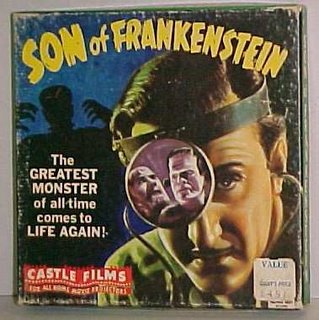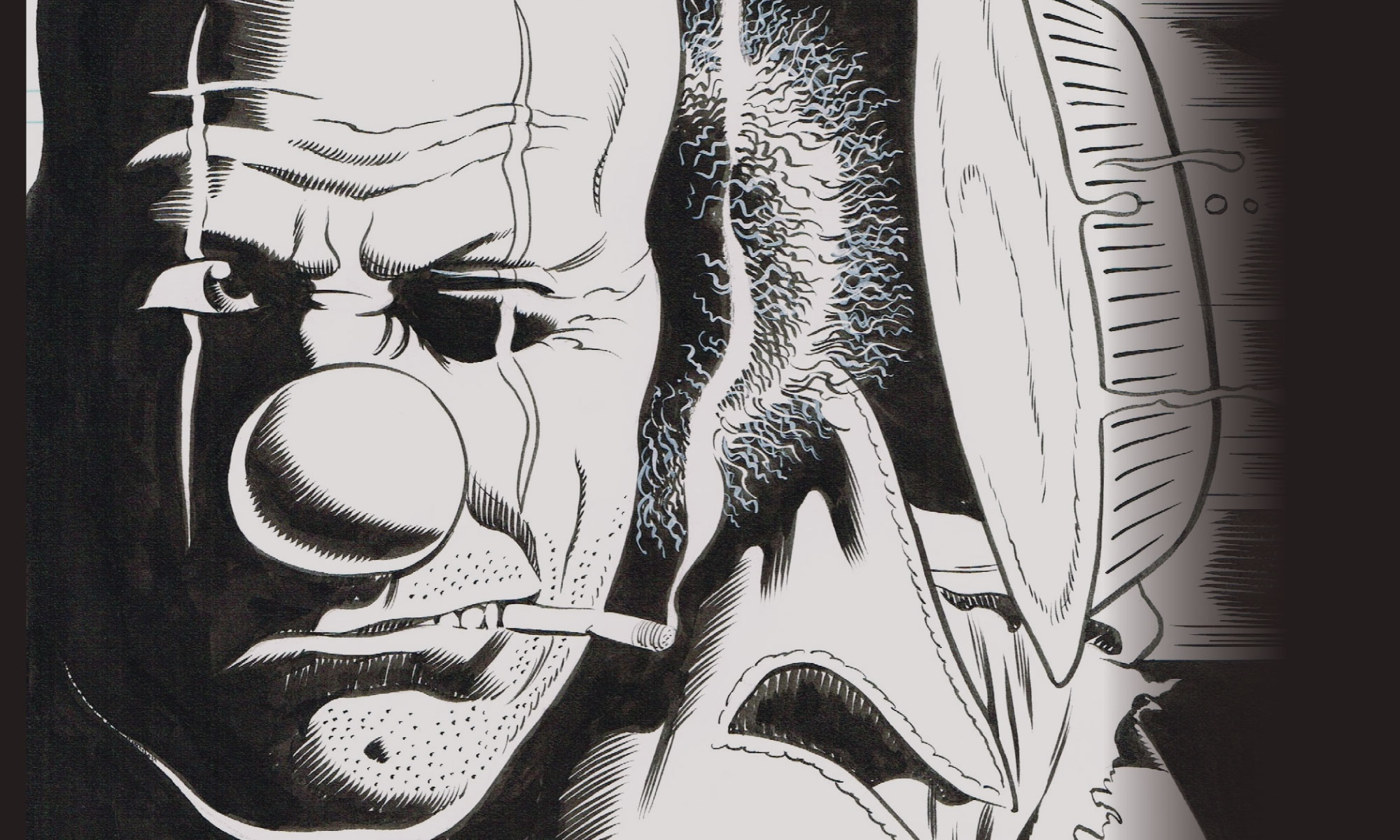 Last Saturday night, I settled in to watch a very old-school horror movie, all by myself. “Son of Frankenstein” is not fancy in its storytelling, or even very coherent. Somehow the monster had been struck by lightning and fell into a coma, yet while in that coma Igor had sent the monster off to murder the burgomeisters who’d condemned him to the gallows. Now the son of the original doctor revives the monster, filled with excitement yet horrified by what he’s done. The police chief, who’s arm had been wrenched out of his body as a child by the monster, suspects the doctor but protects him from the mob. In the end, in a presaging of the end of “Terminator 2”, the monster is pushed into an 800-degree liquid sulphur pit and burned alive.
Last Saturday night, I settled in to watch a very old-school horror movie, all by myself. “Son of Frankenstein” is not fancy in its storytelling, or even very coherent. Somehow the monster had been struck by lightning and fell into a coma, yet while in that coma Igor had sent the monster off to murder the burgomeisters who’d condemned him to the gallows. Now the son of the original doctor revives the monster, filled with excitement yet horrified by what he’s done. The police chief, who’s arm had been wrenched out of his body as a child by the monster, suspects the doctor but protects him from the mob. In the end, in a presaging of the end of “Terminator 2”, the monster is pushed into an 800-degree liquid sulphur pit and burned alive.
Yeah, how can anything go wrong when your laboratory is built over the bubbling miasma of an 800-degree liquid sulphur pit?
So, not as creepy as the original, and not as stylized and surprising as “Bride of Frankenstein.” But Boris Karloff gets to wear the fur vest later made popular by Sonny Bono, and many scenes inspired terrific material in Mel Brooks’ “Young Frankenstein”. More like a Transylvanian pot roast than a fancy meal, yet, it satisfies. Every Halloween, I promise myself to watch an old Universal horror film, for old times’ sake–where would Halloween be without those characters? Sometimes the kids will join me, but this year the movie scared my 10-year-old, and my 13-year-old was too busy with parties.
Watching old, mediocre horror movies is not just an exercise in nostalgia (though don’t knock that–it’s the only exercise I get). There’s something enjoyable about watching bad movies with outlandish sets and dialog, something ephemeral yet instructive. In the age of Netflix and cable TV and Tivo, we could watch quality programming any time we flip on the boob tube. Yet we don’t. We save and watch episodes of America’s Top Model and Jim Belushi sitcoms and everything the vast wasteland offers. Perhaps it’s a fear that too much quality can kill a person, or at least turn him into an NPR host.
I watch old movies looking for surprises, like strange interior architecture (lots of suspended staircases in “Son of Frankenstein”, for some reason), stilted dialog, and actors who may have been given all of 30 seconds of screen time in their lives. I also use them to slow myself down, to get away from clips and fast-forwards and every other time convenience that has speeded up our lives so much. (Why does it feel that we are saving time yet always short of it? Is it another manifestation of human greed? Can you ever have enough time, especially when the time you save is spent on learning new ways to save time?) It used to be that entertainment on television was limited and started and stopped at certain times. Now that offerings are “on-demand” more and more, there’s a certain pressure to suck more of it up.
A familiar scenario: It’s 11:30 and I should be in bed, but I’ve saved “Seven Samurai”, “The Hustler” and a bunch of NatGeo specials on Tivo. I ask myself, “Shouldn’t I watch at least some of each of them, just as a signal that I’ll get to them eventually?” And an unsatisfying hour is spent managing the TV workload, depriving me of the sleep I need the next day. Shouldn’t entertainment be relaxing and not an exercise in multitasking and time-wrangling? Maybe I like mediocre movies just for the fact that, if I don’t make it to the end, I don’t have to feel guilty about not finishing it.

